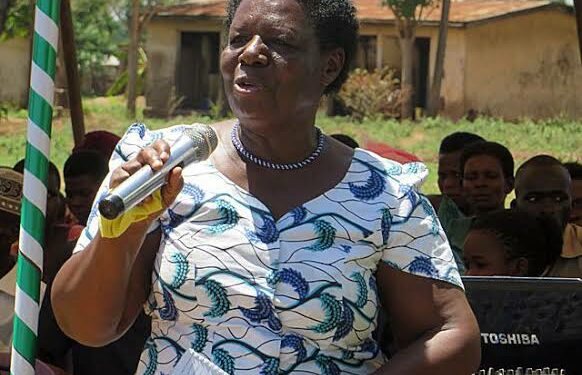THE old popular African proverb, “…It Takes A Village To Raise A Child…”, insinuates that to raise a child requires more than just a parent and it’s the reason Senior Presidential Advisor (SPA) in charge of Poverty Alleviation in Busoga Mrs. Florence Mutyabule is asking the Basoga to revisit the culture of ‘Community Parenting’ that was once cherished in the region.
It conveys the message that it takes many people to provide a safe, secure and healthy environment for children, where they are given the security they need to develop and flourish and to be able to realize their hopes and dreams.
Inherent in the concept of the “village” in this context, is the idea that caring for and raising up children should be a shared responsibility among the community who adopts the philosophy of ubuntism which in simple terms is the interdependence of humans on another and the acknowledgement of one’s responsibility to others and the world around them.
In the past when people were still ‘normal’ any community member would offer guidance by way of rebuking or even administering corporal punishment (which has been outlawed) to any errant child and would then report to the parent.
This has now changed where any slight touch of a child would lead to legal battles in the police where one can be charged with either assault or indecent assault, which attracts heavy penalties upon conviction in the court of law.
Likewise, Mrs. Florence Mutyabule observes that the “village” in Busoga today, like many parts of the country, especially in urban centers has been swallowed up by a new spirit of individualism, meaning every child now belongs strictly to the parent.
“…it’s no longer a surprise that a neighbor knows or facilitates the defilement of a neighbor’s child, it’s no longer news to witness young school girls being abused in lodges and guesthouses in broad daylight and members of the public do not bother…”she laments.
She says most families are faced with numerous challenges like gender based domestic violence, poverty, substance use and addiction problems, poor accommodation, mental illness, poverty leading to relationship breakdowns which affect the children.
The former Mothers Union President says some of the challenges cited can be managed with timely and proper information through regular and friendly communication with family members including children.
To avert the above challenges which have repercussions on the children’s health and future, Mrs Florence Mutyabule who served as head teacher for decades before diving into, urges parents to build a strong relationship with their children.
She also asks parents to balance their care and support to their children by encouraging and teaching them to engage in some house chores as opposed to focusing more on academic work only.
In the current Ugandan setting, school administrations have devised means whereby children from nursery to secondary schools have weekend studies, extra lessons very early in the morning, and holiday packages which are all paid for by the parents.
This means even during holidays, the learners hardly have time to rest their brain because they have to complete the assignments which will be one of the requirements when the school term opens.
Due to the economic challenges, most parents and guardians spend more time outside ‘chasing for deals’ in order to provide food and school fees, leaving the children at the mercy of technology (smartphones, TVs and movies) plus peers.
Florence Mutyabule is advocating for a healthy parent-child relationship, teacher-student relationship as the most important social relationship for teenagers because they play an important role in the development of their social functions.
“…the parent-child relationship is a type of interpersonal relationship that unites a natural relationship and a social relationship which is bound by blood relationship leading to stability, intimacy and permanence…”,she said.
What You Need To Know:
Experts say parent-child relationship is extremely important for the physical and mental development of teenagers.
They also say parents’ psychological aggression and corporal punishment can easily lead to more deviant behaviors, like aggression, violation of discipline and anxiety.
According to some studies, parent-child conflict has a long term and persistent negative impact on adolescents’ behavioral problems and deviation.
A number of studies have also found that academic pressure may affect adolescents’’ problem behavior through parent-child conflict.
Academic pressure includes the pressure placed on adolescents by parents, like when academic performance fails to satisfy parents, it will affect family relations, resulting in parent-child conflict, which may lead to an increase in adolescents’ problem behavior.
Do you have a story in your community or an opinion to share with us: Email us at editorial@watchdoguganda.com














